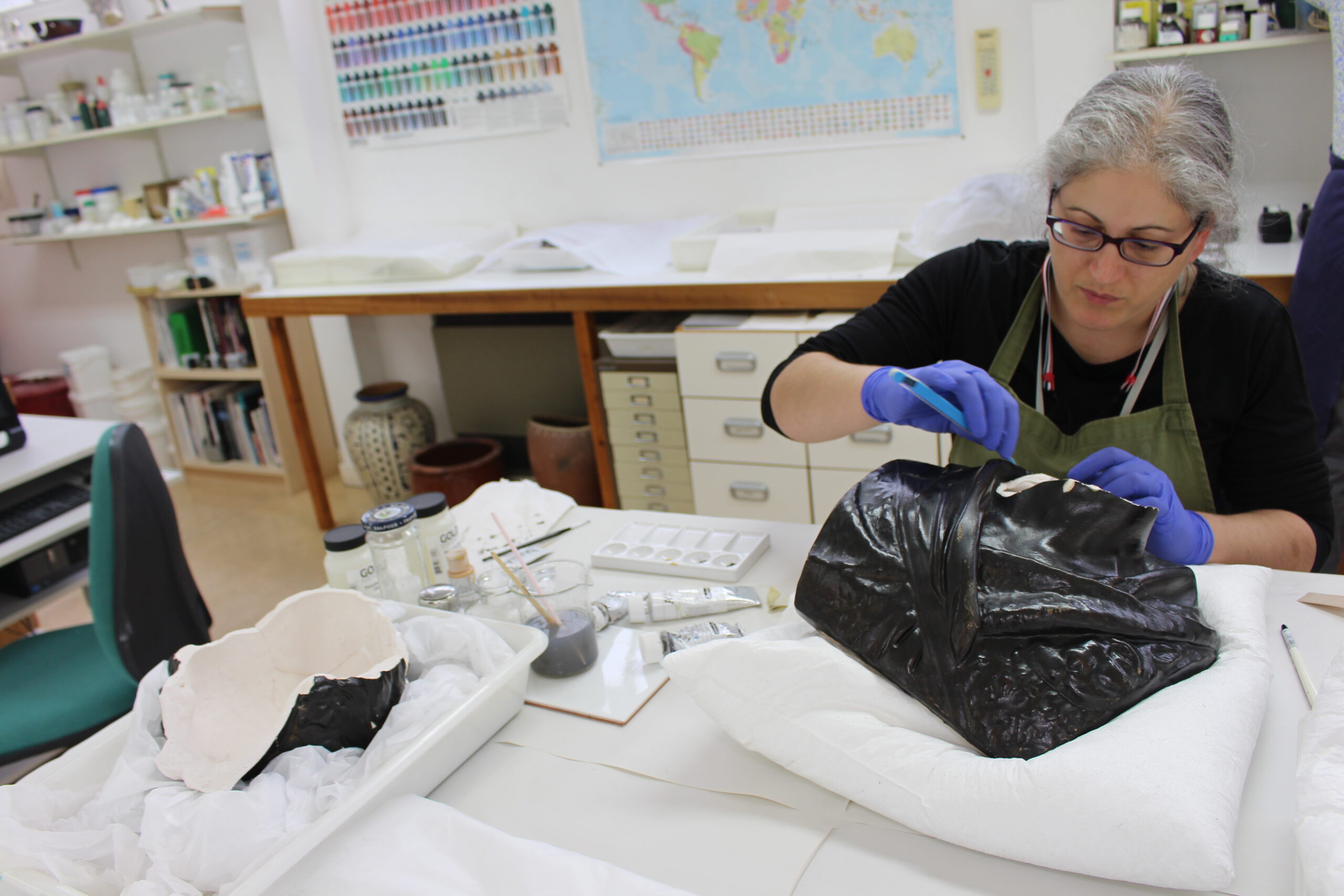The David Livingstone Birthplace in Blantyre re-opens this Wednesday, July 28.
Student Andriani Maimaridou, who is currently undertaking a Professional Development Diploma after the successful completion of an MA in Conservation Studies – Ceramics and Related Materials at West Dean College of Arts and Conservation was given a big challenge – to conserve a painted plaster bust of world-famous Scottish Christian missionary David Livingstone (1813-73) in time for the big day.
Arriving in multiple pieces, the large and heavy bust, which measures 58.5cm in height and 33cm in width, was broken in numerous fragments that could be grouped into three sections: the lower section consisted of the base or plinth; the middle section is the ‘chest’ and the top section includes the head and neck.
The top section, which had the most damage, was in approximately 24 sections, while the middle section (chest) was detached from the plinth (lower section).

The broken pieces of the bust
Using state-of-the-art technology in West Dean’s Science Laboratory, right through to everyday items such as clingfilm, the project took 15 months to complete.
One of the first things was to analyse the paint using the X-Ray Fluorescent Spectroscopy technique to identify potential hazardous components such as lead, while practical conservation treatments included surface cleaning, consolidation and bonding as well as complex and extensive filling of areas of loss.
Andriani explained: ‘The David Livingstone painted plaster bust project from within a Museum setting was a great learning experience despite interruptions due to the pandemic. Due to the complexity of the conservation treatment, careful planning, flexibility, and problem solving throughout the treatment were necessary.
‘I had the opportunity to liaise with specialist conservators regarding the conservation treatment of plaster and large-scale sculptures. I also benefitted from working with colleagues from the Books and Paper conservation department regarding the removal and housing of the paper label. For certain tasks, such as handling and bonding the large and heavy sections I sought support from my peers in the Ceramics conservation studio.
‘From assessment to completion, I really enjoyed all the conservation stages involved, particularly the technical challenge of filling the large voids on the head. The retouching process was not an easy task but working in a methodical way meant this all blended well at the end.
‘I am glad that I had the opportunity to work on such an incredible project of an interesting material type, shape, context, and history.’

Andriani Maimaridou at work on the David Livingstone bust
Natalie Milor, curator at David Livingstone Birthplace said: ‘The David Livingstone Birthplace is grateful for the care Andriani has taken to restore the bust of our museum’s namesake. While we have no record of how the the object was damaged, with Andriani’s expertise we look forward to displaying it as part of the newly transformed Birthplace Museum.’
West Dean College of Arts and Conservation has an international reputation for excellence and is a full partner of the University of Sussex. Students regularly work with material from the College’s Collection and Archive, as well as objects from museums and private collections, due to the College’s extensive links with the heritage sector.
For Conservation and Fine Art study opportunities, see www.westdean.ac.uk.
TAGS

